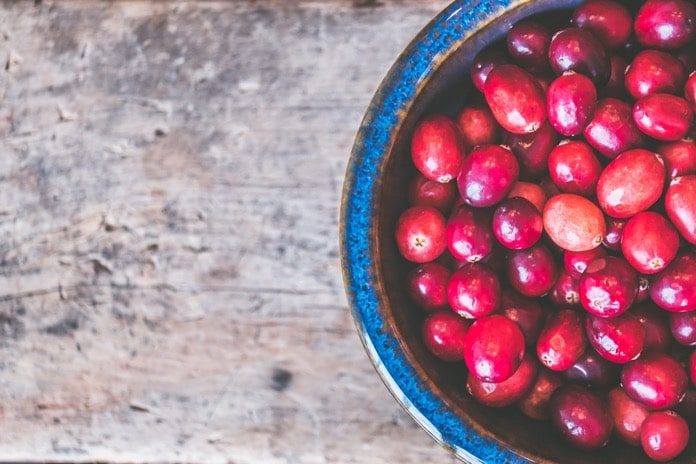Individuals often consume cranberries to prevent or treat urinary tract infection (UTI). Here, we discuss whether cranberries really do help treat UTIs.
Cranberries are a low-calorie fruit that comes from an evergreen shrub, called cranberry, which grows throughout North America. In the past, cranberry fruits or leaves were used for a variety of conditions, including bladder, stomach, and liver disorders, along with treatment for diabetes and wound care.
Currently, cranberry is used as a dietary supplement primarily for urinary tract infections (UTIs). Cranberries are used in beverages and food, but they can also be made into dietary supplements in the form of extracts, powder, capsules, and tablets.
What do cranberries contain?
Cranberries contain high amounts of vitamin C, A, and K, along with an antioxidant called proanthocyanidins (PACs), which may prevent various diseases through the following mechanisms: reducing incidences of certain infections, promoting heart health, protecting the urinary tract, decreasing inflammation association with chronic disease and aging, as well as supporting digestive health. Anthocyanins are the compounds that give cranberries their red color, and they are also powerful antioxidants, comparable to vitamin E.
What does the evidence say about taking cranberry to prevent UTIs?
In 2016, a year-long study of 147 women living in nursing homes who were consuming two daily cranberry capsules showed a 40% average decrease in bacteria levels in their urine for the first six months of the study. However, consuming cranberry did not decrease their frequency of UTIs throughout the entire year of the study when compared to taking a placebo. Additionally, both cranberry capsules together contained as much PAC as 20 ounces of cranberry juice.
Earlier in 2012, a research review of 13 clinical trials discussed how cranberry may help reduce the risk of UTIs in certain groups such as women with recurrent UTIs, children, and in people who use cranberry-containing products more than two times a day.
Another research review that year evaluated 24 different clinical trials and explained how consuming cranberry juice and supplements were found not to prevent UTIs, although a majority of the studies analyzed were of poor quality.
As a result, the National Institute of Health claims that cranberry has not been demonstrated to be an effective treatment for an existing UTI.
On the other hand, a recent analysis of studies published in Clinical and Experimental Pharmacology and Physiology discusses how cranberry juice has anti‐adhering activity that prevents bacteria from sticking to bladder walls, citing a study that demonstrated a 35% decrease UTIs among females with recurrent UTIs who were consuming cranberries for one year.
Another study published in this report showed that that cranberry extract taken over six months decreased UTIs to the same extent as the trimethoprim, which is an antibiotic commonly prescribed to treat UTIs. Furthermore, the authors discussed how sialic acid found in cranberry extract has both anti-inflammatory and analgesic effects, therefore, it can assist in alleviating symptoms of UTIs. Although cranberry is not recommended in treating active UTIs, the authors argue that it is effective in decreasing the frequency of recurrent UTIs.
Safety of cranberry
Although drinking cranberry juice appears to be safe, consuming large quantities may cause an upset stomach and increases the risk of developing kidney stones over time. Moreover, cranberries are a good source of vitamin K, therefore consuming large quantities of cranberries may change warfarin levels, which is a blood thinner that works against vitamin K. Lastly, it remains important to see a health care provider for a diagnosis and treatment of UTI and avoid using cranberry products to replace proven treatments for infections, such as prescribed antibiotics.
Future of cranberry
In 2015, a study reported that consuming cranberries may be beneficial to protect bacteria in the gut along with providing antioxidant and anti-inflammatory functions that benefit the cardiovascular system, metabolism, as well as immune function. Present research focuses on how this interaction may help strengthen the gut to protect against infection.
Lastly, there is ongoing research funded by the NIH to explore the possible effects of cranberry on cancer-related anemia and tumor cells.
Written by Tatsiana Verstak, M.S., B.S.
References:
- Cranberry by the NIH: National Center for Complementary and Integrative Health. Last modified November 30th, 2016.
- Cape Cod Cranberry Growers’ Association. Health Benefits: Cranberry Health. cranberryinstititute.org. Last updated 2019.
- Shaheen, G. et al. Therapeutic potential of medicinal plants for the management of urinary tract infection: A systematic review. Clin Exp Pharmacol Physiol. 2019;1–12.



